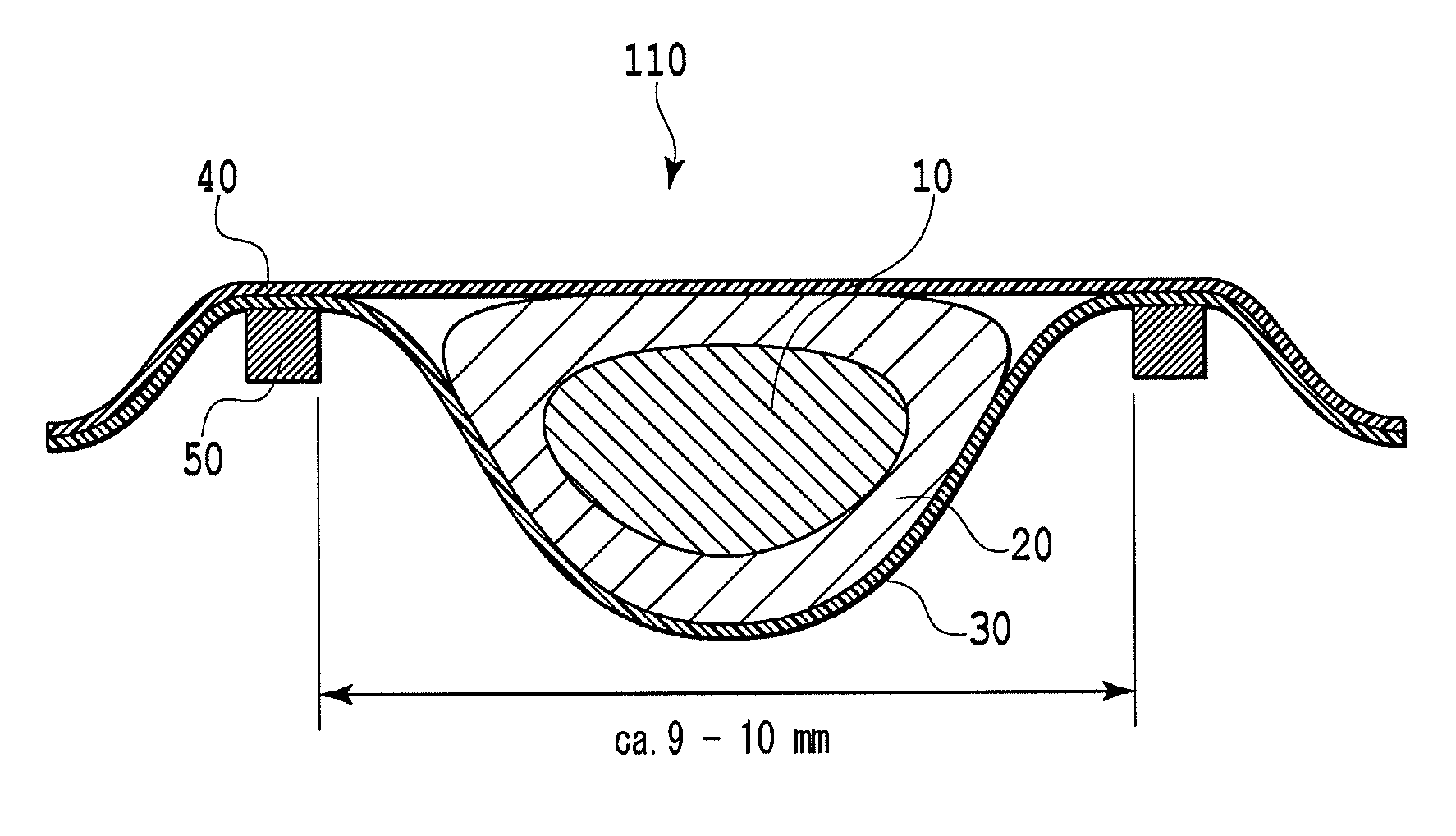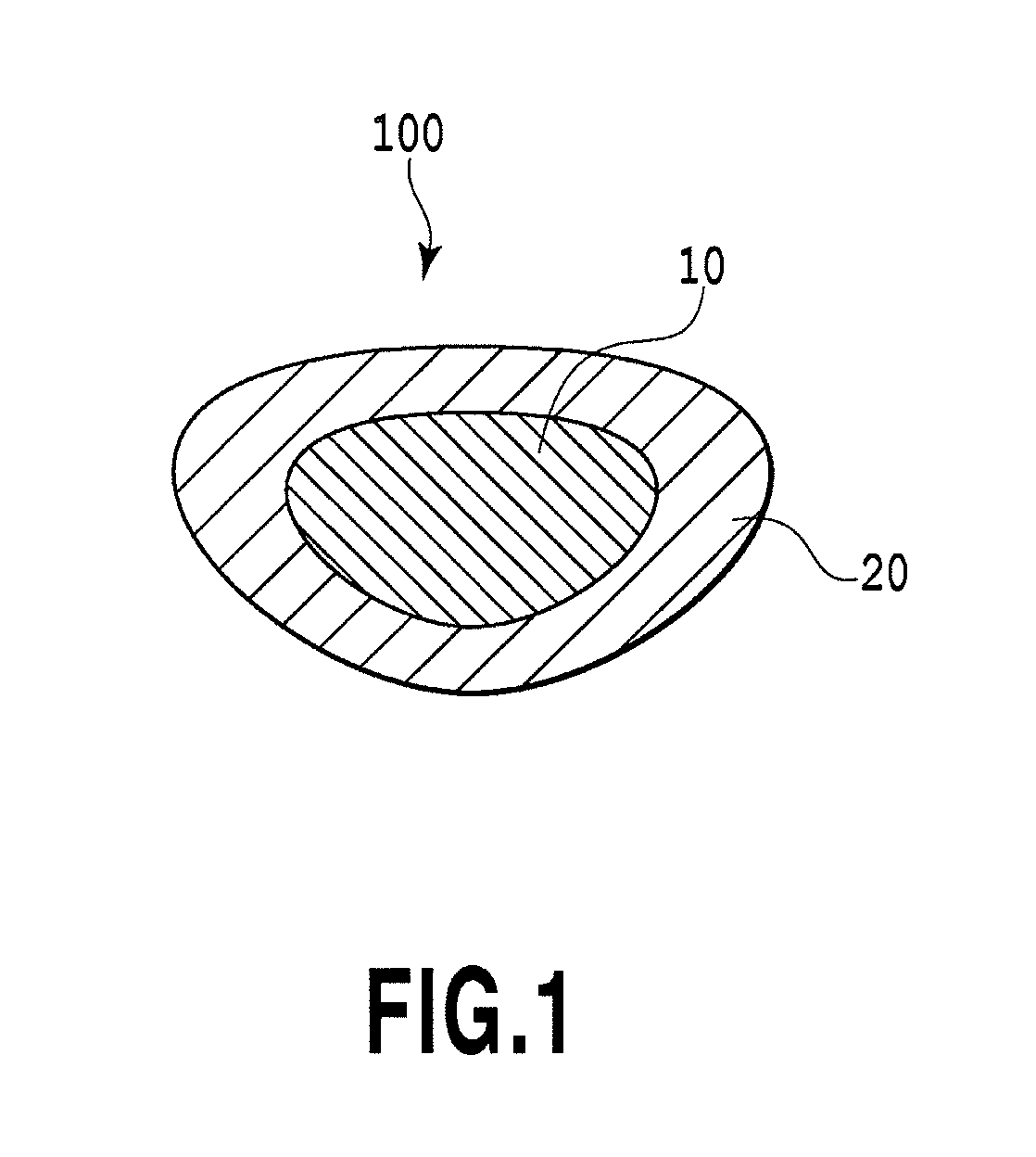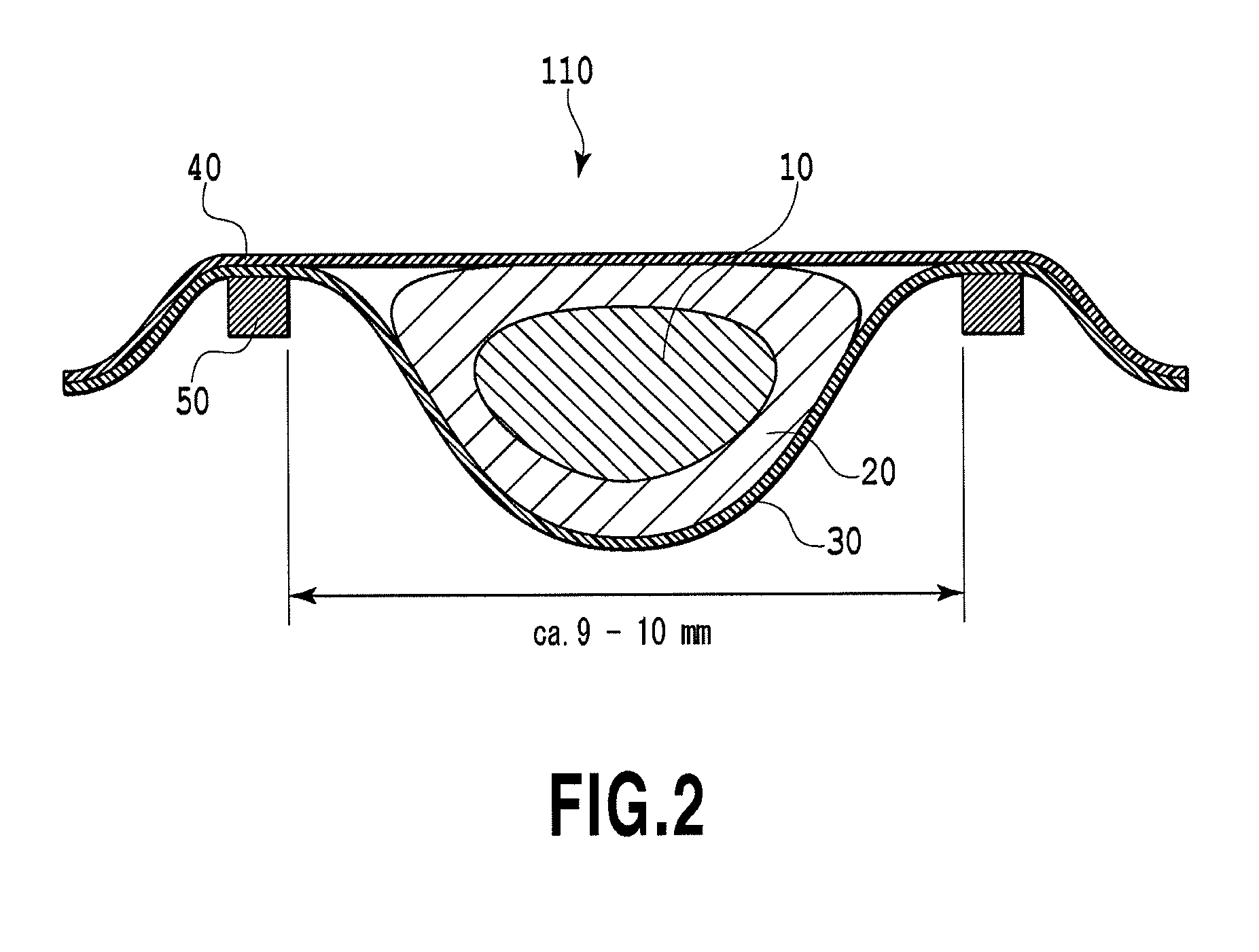Artificial lens for cataract surgery practice
a technology of artificial lens and cataract surgery, applied in the field of artificial lens, can solve the problems of unsanitary use of porcine eyes in the operating room, difficult clinical practice training of young unskilled surgeons in surgery, visual impairment, etc., and achieve the effect of effective learning
- Summary
- Abstract
- Description
- Claims
- Application Information
AI Technical Summary
Benefits of technology
Problems solved by technology
Method used
Image
Examples
Embodiment Construction
[0072]There has been a demand for an artificial lens provided in an artificial eye device for cataract surgery and which allows surgery simulation training to be carried out exactly in the same manner as that for the human eyes lens. During past three years, the inventor spent at least 3,000 hours in experiments to test and process various materials and combinations thereof. Then, at last, the inventor successfully developed an artificial lens (artificial cataract lens) that allows surgery simulation training to be carried out exactly in the same manner as that for the human eyes lens.
I. Structure and Material of the Artificial Lens According to the Present Invention
[0073]An embodiment of the artificial lens according to the present invention includes at least an artificial nucleus corresponding to the human eye nucleus and an artificial cortex corresponding to the human eye lens cortex. Another embodiment of the artificial lens according to the present invention further includes an...
PUM
 Login to View More
Login to View More Abstract
Description
Claims
Application Information
 Login to View More
Login to View More - R&D
- Intellectual Property
- Life Sciences
- Materials
- Tech Scout
- Unparalleled Data Quality
- Higher Quality Content
- 60% Fewer Hallucinations
Browse by: Latest US Patents, China's latest patents, Technical Efficacy Thesaurus, Application Domain, Technology Topic, Popular Technical Reports.
© 2025 PatSnap. All rights reserved.Legal|Privacy policy|Modern Slavery Act Transparency Statement|Sitemap|About US| Contact US: help@patsnap.com



